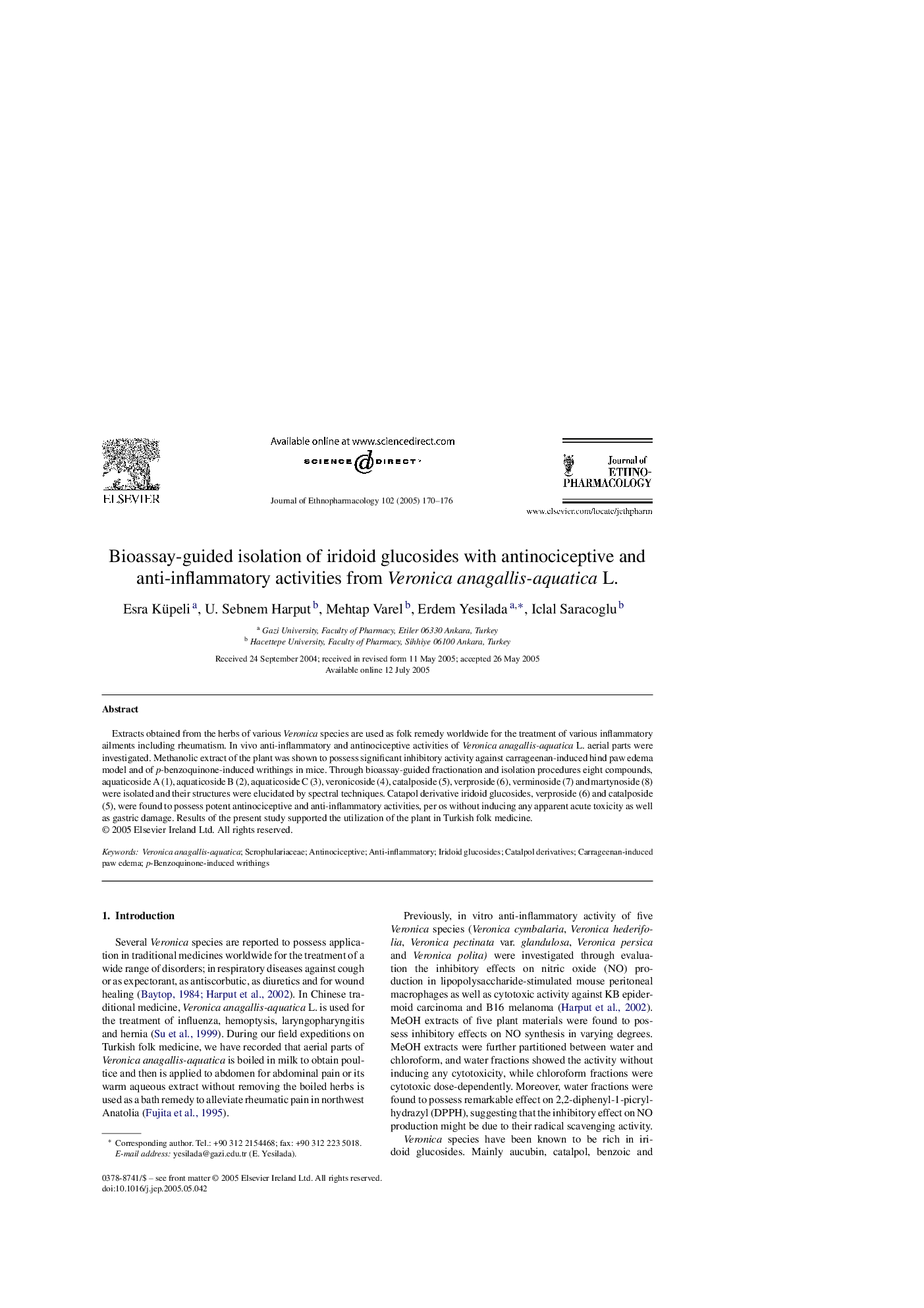| Article ID | Journal | Published Year | Pages | File Type |
|---|---|---|---|---|
| 9010385 | Journal of Ethnopharmacology | 2005 | 7 Pages |
Abstract
Extracts obtained from the herbs of various Veronica species are used as folk remedy worldwide for the treatment of various inflammatory ailments including rheumatism. In vivo anti-inflammatory and antinociceptive activities of Veronica anagallis-aquatica L. aerial parts were investigated. Methanolic extract of the plant was shown to possess significant inhibitory activity against carrageenan-induced hind paw edema model and of p-benzoquinone-induced writhings in mice. Through bioassay-guided fractionation and isolation procedures eight compounds, aquaticoside A (1), aquaticoside B (2), aquaticoside C (3), veronicoside (4), catalposide (5), verproside (6), verminoside (7) and martynoside (8) were isolated and their structures were elucidated by spectral techniques. Catapol derivative iridoid glucosides, verproside (6) and catalposide (5), were found to possess potent antinociceptive and anti-inflammatory activities, per os without inducing any apparent acute toxicity as well as gastric damage. Results of the present study supported the utilization of the plant in Turkish folk medicine.
Keywords
Related Topics
Health Sciences
Pharmacology, Toxicology and Pharmaceutical Science
Pharmacology
Authors
Esra Küpeli, U. Sebnem Harput, Mehtap Varel, Erdem Yesilada, Iclal Saracoglu,
